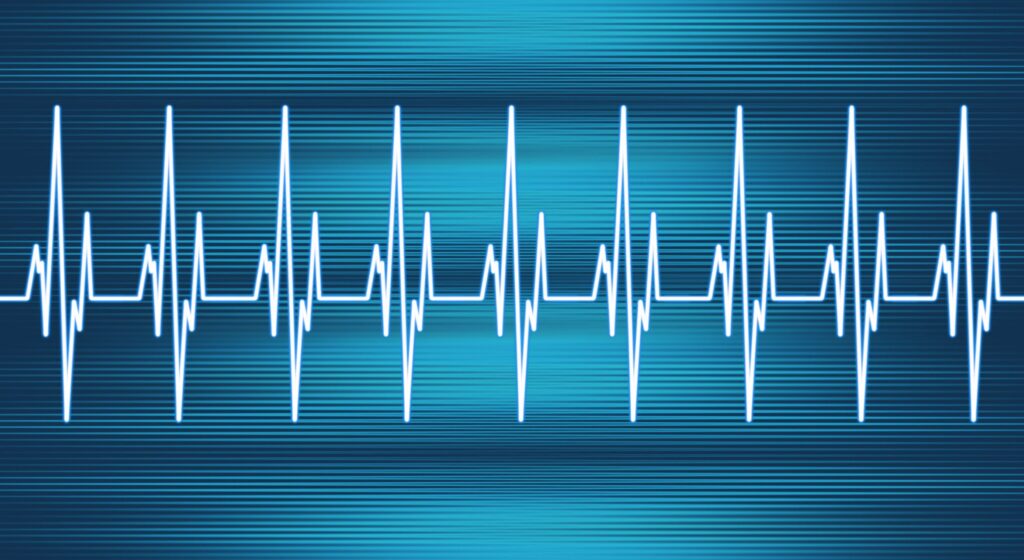Several kinds of cardiac arrhythmias cause tachycardia, but for this blog post, we will focus on two: SVT and ventricular tachycardias.
Supraventricular tachycardia (SVT) arises in the heart’s atria, and ventricular tachycardias occur in the ventricles. Both types of tachycardias differ in the amount of danger they pose and how they affect patients.
Supraventricular Tachycardias (SVT)
SVT can be seen in young, otherwise healthy individuals, but mostly they tend to occur in older people. SVT is particularly concerning because episodes tend to begin and end quite suddenly without any prior warning.
Episodes of SVT can cause people to experience:
-
- Anxiety
- Lightheadedness or dizziness
- Shortness of breath (sometimes)
- Sudden, significant heart palpitations
- Weakness
The onset of SVT episodes can happen with no warning signs, and people can show no symptoms of this condition between episodes. However, should episodes of SVT occur frequently or are long in duration, the condition can negatively affect and disrupt a person’s everyday life.
Although SVT can be scary to experience, it rarely poses a severe life-threatening risk. There are different varieties of SVT, the most common being:
- Atrial fibrillation
- Atrioventricular reciprocating tachycardia (AVRT), a category that includes Wolff-Parkinson-White syndrome (WPW)
- AV nodal reentrant tachycardia (AVNRT)
- Inappropriate sinus tachycardia (IST)
Several kinds of SVT are much less commonly experienced. Patients can be reassured that SVT is almost always treated effectively, putting their minds at ease. It can also be eradicated entirely through cardiac ablation.
Ventricular Tachycardias
Ventricular tachycardia includes two kinds of arrhythmia: ventricular tachycardia itself and ventricular fibrillation (VF). These arrhythmias tend to be seen in older people with underlying cardiac diseases, such as coronary artery disease and heart failure.
VF is the most dangerous of the two, and episodes tend to lead to death within a few short minutes unless the patient can have it stopped with medical intervention. The electrical impulses within the ventricles suddenly become irregular and chaotic, causing the heart to stop beating and cardiac arrest to occur.
Ventricular tachycardia is a dangerous and potentially life-threatening arrhythmia originating in the ventricles. Some people only experience minor symptoms, but in most cases, people will experience:
- Severe lightheadedness or loss of consciousness
- Significant palpitations
- Sudden death
Ventricular tachycardia differs from VF in that it allows the heart to continue to pump to some extent in many cases. Sudden death may not happen, or it may not occur at all. Most people with ventricular tachycardia develop this due to CAD or heart failure.
Practitioner Development UK Ltd. offers a practical course aimed at doctors, nurses and allied health professionals who diagnose, assess and care for patients with heart disease.
A130 The Patient – The Clinician – The ECG
This is a highly interactive two-day module covering critical areas of the ECG. The A130 course covers several ECGs seen in everyday practice, and all ECGs used in the session will be actual patient traces.
The course will include in-depth dissecting of the ECG, considering the patient’s presentation and how best to manage the patient once a diagnosis is reached.
The session aims to enable doctors, nurses and allied health professionals to have more insight into aspects such as:
- Be able to identify key 12 lead ECG presentation and how to best manage the patient
- Be able to identify the key and essential ECG rhythms
- Have a clear structure and approach when reviewing both ECG rhythms and the 12 Lead ECG
- Have a clear understanding of when to acquire a 12 Lead ECG
- Review of the cardiac conduction system and how it relates to the ECG
There will be breaks to allow questions throughout the sessions. Learners will be encouraged to engage by providing answers to questions posed through the session to ensure learning is taking place. All course material, evaluations and certificates are provided.

Comments are closed.